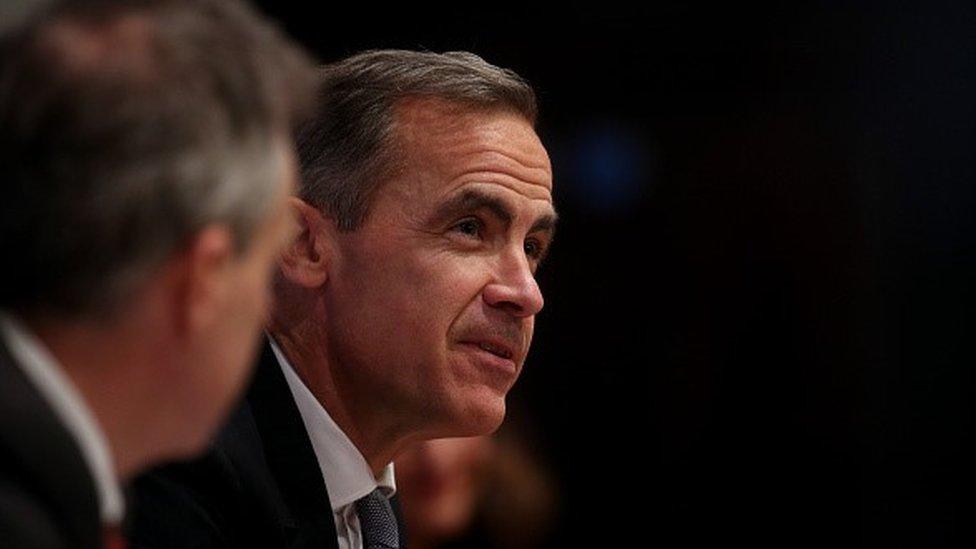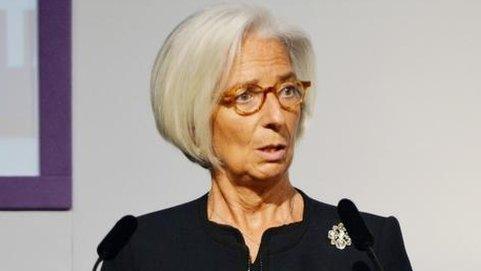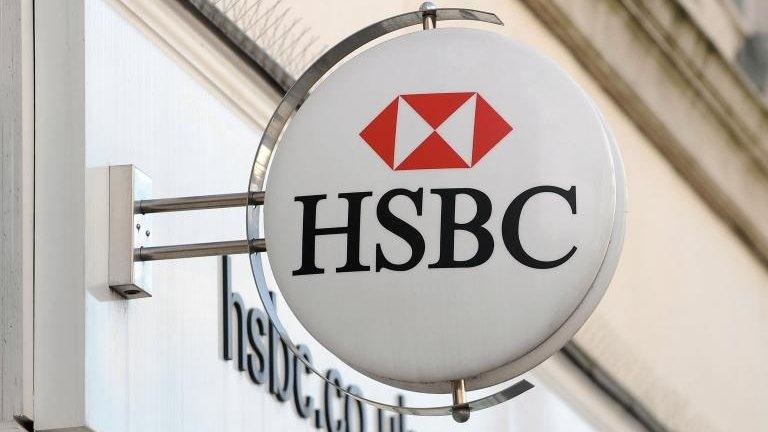Era of 'too big to fail' banks to end
- Published

Mark Carney said many bank reforms have already been implemented
The world's top 30 banks will be required to issue "buffer bonds" as the final part of reforms designed to prevent a repeat of the 2008 financial crisis.
Regulators say the reforms will end the phenomenon of "too big to fail" banks.
The proposals, set out by global financial regulators are designed to avoid the need for taxpayers to bail out the banks in a future crisis.
Instead investors will be required to accept a loss on their investments.
Leaders of the G20 group of nations will be asked to endorse the reforms.
Under the proposals drawn up by the Financial Stability Board (FSB),, external chaired by UK Bank of England governor Mark Carney, banks will be required to issue "buffer bonds" by 2019 equivalent to 16% of the risk-weighted assets they hold, rising to 18% in 2022. Such assets can include government debt and cash.
In the event of a financial crisis the value of those bonds could be written down and used to raise funds for the bank.
As a result investors in those bonds would bear the burden of keeping the bank solvent by taking a "haircut" or loss on their investments.
The reform means investors will be the first to take a financial loss before taxpayers are asked to bail out the bank in question.
The "buffer bonds" are the last major reform to be announced by the FSB since the G20 tasked it with introducing changes to the regulate the banking industry in 2009.
The FSB has since increased bank capital requirements and imposed restrictions on bankers' bonuses.
Mr Carney said many key reforms have already been implemented.
"As a consequence, the financing capacity to the real economy is being rebuilt and significant retrenchment from international activity has been avoided," Mr Carney said in a letter to G20 leaders ahead of their summit next week.
The FSB believes the reforms will allow a big bank to fail without creating the level of panic in financial markets after Lehman Brothers went under in 2008.
The "buffer bonds", known as Total Loss-Absorbing Capacity or TLAC, are on top of the minimum core capital requirements a bank must already hold.
The FSB is also assessing the risks to financial stability from the activities of big asset managers and said it would publish recommendations "as necessary in the first half of 2016".
- Published27 May 2014

- Published15 April 2014

- Published24 April 2015
